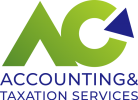Filing your tax return in New South Wales (NSW), Australia, is an annual responsibility that every taxpayer must fulfill. It’s a process that requires careful attention to detail and adherence to tax laws and regulations. One of the key pillars of a successful and stress-free tax return is accurate record-keeping. Keeping meticulous records of your financial transactions throughout the year is not just a good practice; it is essential for several reasons. In this article, we will explore the importance of accurate record-keeping for your tax return in NSW.
1. Ensuring Compliance with Tax Laws
Accurate record-keeping is fundamental to complying with tax laws in Australia. The Australian Taxation Office (ATO) requires taxpayers to maintain records that can substantiate the information provided in their tax returns. By keeping detailed and organized records of your income, expenses, deductions, and receipts, you can confidently and truthfully report your financial information to the ATO. Failure to maintain proper records may result in penalties, interest, and potential audits.
2. Minimizing Errors and Omissions
Tax returns can be complex, especially if you have multiple income sources, deductions, or investments. Without accurate records, it’s easy to overlook or forget certain transactions, leading to errors and omissions in your tax return. Simple mistakes in reporting income or claiming deductions can trigger compliance issues with the ATO and may lead to additional tax liabilities or missed opportunities for refunds.
3. Maximizing Deductions and Refunds
Maintaining detailed records of your expenses and deductions allows you to claim all the tax deductions you are entitled to. These deductions can significantly reduce your taxable income, leading to a lower tax bill or a potentially larger tax refund. However, to claim these deductions, you must be able to substantiate them with proper documentation. Accurate record-keeping ensures you have the evidence necessary to support your claims and maximize your tax benefits.
4. Facilitating Tax Audits and Reviews
While no one wants to be audited, it’s essential to be prepared for the possibility. Accurate record-keeping makes the audit process much smoother and less stressful. If the ATO decides to review your tax return, having well-organized records readily available can help you answer any questions or provide the necessary evidence to support your claims. In contrast, inadequate record-keeping can prolong the audit process and raise suspicions with the tax authorities.
5. Tracking Financial Progress
Keeping accurate records not only benefits your tax return but also enables you to monitor your financial progress throughout the year. By analyzing your income and expenses regularly, you can identify trends, spot potential financial issues, and make informed decisions about budgeting and investments. Accurate financial records provide valuable insights into your financial health and empower you to plan for the future more effectively.
6. Supporting Business and Investment Activities
If you operate a business or have investment activities, accurate record-keeping becomes even more critical. Business owners must maintain detailed records of sales, expenses, assets, and employee information. Investors need records of investment purchases, sales, dividends, and capital gains. Properly organized records facilitate tax reporting for these activities and assist in making informed decisions to grow your business or investment portfolio.
7. Avoiding Stress and Last-Minute Rush
Accurate record-keeping throughout the year can prevent the stress and last-minute rush that often accompanies tax season. When your financial records are well-organized and up-to-date, you can approach tax time with confidence, knowing that you have everything you need to complete your tax return accurately and on time.
Conclusion
Accurate record-keeping is a foundational aspect of successfully filing your tax return in NSW, Australia. It ensures compliance with tax laws, minimizes errors, maximizes deductions, and supports your financial decisions. Whether you use digital tools, accounting software, or traditional methods like folders and spreadsheets, find a record-keeping system that works for you and maintain it diligently throughout the year. By doing so, you can navigate the tax filing process smoothly, optimize your tax benefits, and enjoy greater peace of mind with your financial affairs. Remember, good record-keeping is not just about taxes; it’s a valuable skill that can enhance your overall financial well-being.


